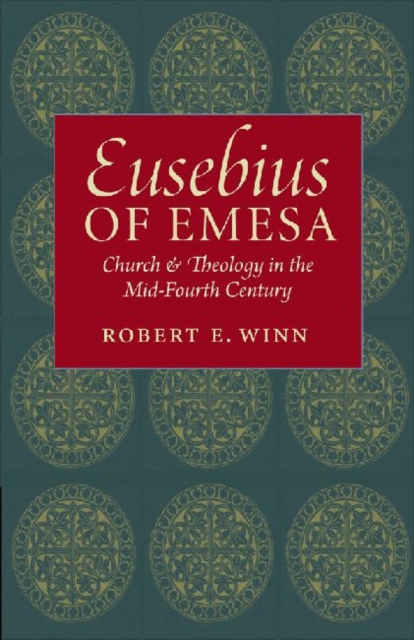
Eusebius of Emesa : Church and Theology in the Mid-Fourth Century Hardback
by Robert E. Winn
Hardback
Description
Eusebius, the bishop of Emesa (c. 300–359) is today not a well-known figure of late ancient Christianity.
Yet he achieved apparent notoriety in antiquity: he was a student of the famous Eusebius of Caesarea, he was connected to the entourage of the emperor Constantius, he had earned the respect of prominent ecclesiastical figures in the mid-fourth century, and he was recognised as a talented orator and biblical commentator.Through a careful examination of his extant sermons, some of which survive in Latin and others in classical Armenian, this book invites readers to hear a bishop’s voice from the mid-fourth century, an important period in late antique Christianity.
The volume first introduces readers to the world of Eusebius by situating him in a historical context of places important in his life—Edessa, Antioch, and Emesa—as well as the people with which he was connected, Eusebius of Caesarea and George of Laodicea among others.
After providing a rhetorical study of the sermons, the author then moves to a theological and historical analysis of Eusebius’s sermons.
Robert E. Winn focuses on the four prominent theological concerns that appear in these sermons: the natural world and human nature, the nature of God, the divinity and humanity of Christ, and asceticism and the church. Winn argues that Eusebius’s primary motivation in his preaching was to emphasise what he regarded as the appropriate religious identity of the church.
Remaining true to the apostles would prevent the church from disintegrating into ecclesiastical factions and blurring its distinction with other religious groups, such as Jews, pagans, and Marcionites, all of whom Eusebius saw as a threat to the church’s identity.
Information
-
Item not Available
- Format:Hardback
- Pages:304 pages
- Publisher:The Catholic University of America Press
- Publication Date:11/10/2011
- Category:
- ISBN:9780813218762
Information
-
Item not Available
- Format:Hardback
- Pages:304 pages
- Publisher:The Catholic University of America Press
- Publication Date:11/10/2011
- Category:
- ISBN:9780813218762






